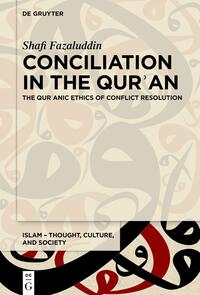
Conciliation in the Qurʾan addresses an existing imbalanced focus in Islamic Studies on conflict in the Qurʾan, and moves beyond a restrictive approach to ṣulḥ (reconciliation) as a mediation process in fragmented social contexts. The book offers a critical analysis of conciliation as a holistic concept in the Qurʾan, providing linguistic and structural insight based on the renowned pre-modern Arabic exegesis of Al-Rāzī (d. 1209) and the under-studied contemporary Urdu exegesis of Iṣlāḥī (d. 1997). This ambitious thematic study of the entire Qurʾan includes an innovative examination of the central ethical notion of iḥsān (gracious conduct), and a challenging discussion of notorious passages relating to conflict. The author offers solutions to unresolved issues such as the significance of the notion of iṣlāḥ (order), the relationship between conciliation and justice, and the structural and thematic significance of Q.48 (Sūrat Al-Fatḥ) and Q.49 (Sūrat Al-Ḥujurāt). Conciliation in the Qurʾan offers a compelling argument for the prevalence of conciliation in the Islamic scripture, and will be an essential read for practitioners in Islamic studies, community integration, conflict-resolution, interfaith dialogue and social justice.